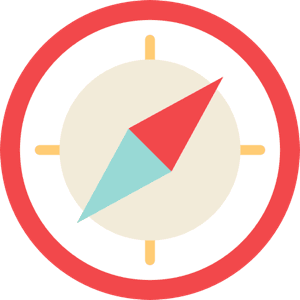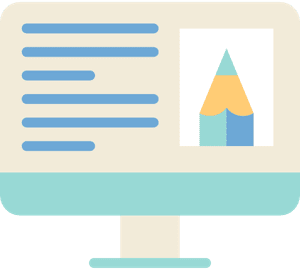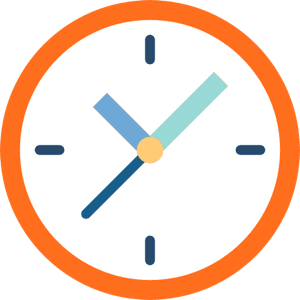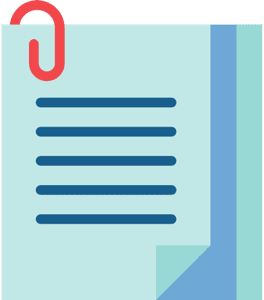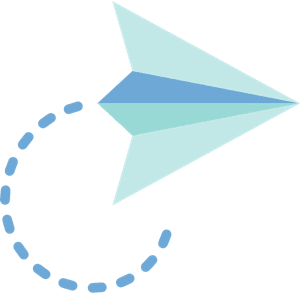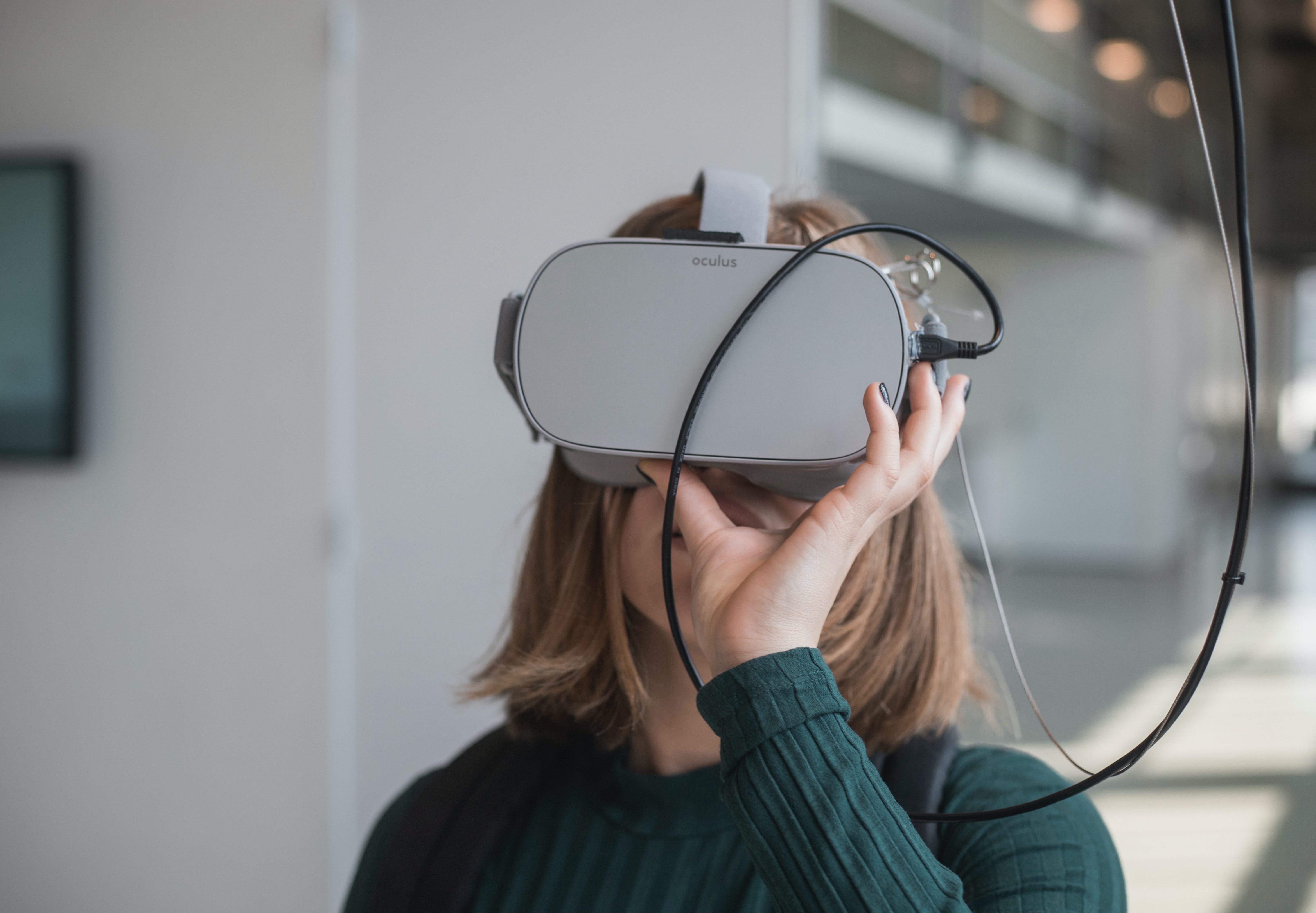Integrating Engaging Learning Techniques Even During Distance Learning, A Conversation with Thom Gibson

In this interview, we sat down with Thom Gibson, a 2x Teacher of the Year based in Austin, TX. He talks about his background in Sound Recording Technology and his techniques for effective learning styles stemming from Social and Emotional Learning practices. He learned how student engagement is his calling, and he’s set out to help other teachers do the same.
By the way, this conversation was originally featured on our podcast K12ish, which you can listen to here or wherever you get your podcasts.
Life Before the Classroom
Tell me about your first job.
My first job was Carl's Jr. in El Paso, Texas. It was a good burger place. I didn't have the best work ethic when I think back to my time there. I remember just trying to not have to do as much work, but I only did that for a couple of months.
Then, my first job that I stayed at for a long time was a grocery store - it's really popular here in Texas - called HEB. I was a bagger there. I worked in the produce department. I had a lot of fun being the guy that was doing the samples and trying to get people to buy them.
Mainly because I learned: "This is way more fun if I just try to make people laugh because I'm not getting any commission off of these things." So, I learned a lot about the Psychology of sales, doing peddling, like mac and cheese and rotisserie chicken and stuff like that.
Those were like my first two jobs. I worked at the grocery store for about five years, so I moved on to something else.
Pathway to YouTube
Did you study Audio Engineering in college?
It was a Bachelor of Science in Sound Recording Technology. It was audio and a lot of video stuff as well. So, I continued to kind of do that stuff later on.
All through college, I was always making short videos. I remember visiting - my mom's Panamanian and I went to go visit Panama with her, but that was the first time I had been - and I had made a vlog before vlogs were a thing on YouTube - it was like 2008. I just had a lot of fun making videos, learning all about like 'how to get good sound' and 'how to make things interesting and engaging.'
Most of the people that were in my program, after they finished college, had to go work for free in like a music studio because the music industry wasn't doing super great. I'm [was] like, "I like all this stuff, but I like working on my projects, and I don't want to work for free.
So, that's when I ended up deciding - "I guess maybe I can see if I can do this teaching thing."
Pathway to Teaching
What brought you to education then? Audio Engineering is not necessarily a feeder into teaching programs.
Throughout college - I never really wanted to be a teacher, but I was doing little things where I was teaching. I was a part of a campus Christian group, where we were putting on a Bible study for international students. Many of them weren't Christians, but they were just curious about what the Bible said and what we believed as Christians.
I remember, a lot of nights, we would have a short part of the Bible that we'd be reading and trying to talk about. I would go to the library and print out that passage in all these different languages - Korean and Turkish and Japanese and Chinese.
Looking back on that now - that was me differentiating to make this text as accessible to everyone that was there and level it out, so they're at least able to read it in their native language, and then kind of share their thoughts on it, what they think it means how it kind of connects to their worldview.
I remember also one moment in an electronics class - I wasn't very good at electronics - and I remember that the teacher was struggling to explain this one concept that for whatever reason, this was one of the concepts that I got - it was a sequence of things that you had to do.
I remember thinking, "I feel like I could explain this in a way that would make sense to other people." The teacher was just struggling and people were like, "I'm just really confused...I don't understand." And he said, "does anyone want to try to explain this better?" And I was like, "I'll try!" Then I shared my thought process.
I had friends after class that was like, "I had no idea what was going on, and so, you got up there and shared it." So, those little things were kind of like, "well, maybe I could see how I could do this teaching thing."
I substitute taught for the semester before my first year of actually teaching - when I was going through my alternative certification program. That's the total trial by fire to develop your classroom management skills - substitute teaching.
From kindergarten to seniors in high school - I was trying all these different grades. It was one of the first things that I had done where I was like, "I want to get good at this."
The days that I was able to get the class to do what I wanted them to do, but not in a way where I was threatening to punish them or tell their teacher, but I made them want to kind of work or listen to me when I was a sub. I was like, "that's cool." I felt like it was such a win.
I wanted to figure out how to do it well. So, then I started teaching in the fall of 2011, and have been doing it since.
Investing in Student Success
Is there a moment you had with a student in one of your initial classes as a full-time teacher that sticks with you to this day?
I was doing a long term subbing position in a pretty rough school. There were just so many discipline problems, and teachers were just leaving the school. Kids were always getting into fights in the hallway.
The principal there asked me if I would be willing to cover a class - they were going to get rid of a teacher three weeks before the end of school - and he asked if I would be willing to cover the class the rest of the school year. So, I said yes.
Then I went back into the classroom that I was dealing with that day, and I almost had a panic attack, because I was thinking: these kids have not had any structure all year. I would hear that class like five rooms down the hallway.
And, I'm like, "there's been no structure all year, I'm trying to come in the last three weeks of school - which is going to be hard in any context - and try to do something."
I remember the weekend before I was reading all of these things on classroom management, and how to teach an English class - I'd never taught English, hadn't taught anything really.
So, I remember I started having some conversations with kids that were acting up. I remember learning: call them outside, have a conversation, be respectful to them, don't try to do this power play or anything. I remember just talking with this student and saying, "you can't behave this way. I want to see you do well, but you can't behave this way."
He ended up having to come in for detention to finish up some work. I remember that - and he had gotten in trouble for just yelling out profanities and stuff - he was working on something. He was frustrated because he couldn't understand - he had some reading disabilities and problems reading.
I was working with him on it. I remember he was getting so frustrated, and he swore under his breath, and then he's like, "I mean shoot." He goes "I know we had that conversation," and he left and he said, "thank you for helping me." He came back and he was never a problem.
He was one of the kids that were the biggest problem, and just always interrupting. He wasn't a problem for the rest of the year and wanted to do well and wanted to complete his work. It was just like, "Wow, I was able to connect with this kid in this situation that was really, really hard!"
That was one of the first moments that I was like, "I think I can do this. I think this could be really meaningful work for me."
How To Connect With Your Students
What got you to first start connecting with teachers online?
Well, I started making stuff on YouTube, and some of it was teaching related because I just wanted to share what I knew. A lot of it was just kind of random. It wasn't until somewhat recently that I was like, "okay, I want to turn this into a business." Then as I started thinking about my teacher brand: what is something that I'm passionate about, I could talk about a ton, and I could offer valuable insight for other teachers? Education was that thing.
So, I focused a lot of time originally on the YouTube channel, and then I remember I was vlogging a lot at the time. One of the vlog reflections was: record 10 minutes of audio in your class, and then reflect on it - what did you like, what did you not like? At the time, I'd wanted to start a podcast for a while - I had an Audio Engineering background - I had done free voiceover work. And I'm like, "I feel a podcast is in me, and I just don't know how to do it yet." That was the start of the podcast.
I recorded the audio, then reflected on it and made an episode - started making a lot more. Part of it I want to do with the business. Part of me just wanted to help teachers, not only with the things that I had found already successful, but so much of my content is reflective in nature. I knew that reflecting on it, and putting it out there in the world would make me a better teacher as well.
I remember for one year I was recording all these different projects in my Robotics class. It was like a robotics video series, and I was doing the same thing in my Math classes. It forced me to think, "how am I going to make this an interesting lesson so that it even looks good on camera?" Kids working on a worksheet doesn't make for an interesting video.
So, the fact that I was creating YouTube content forced me to rethink I was doing stuff in class - to make better content, I was making better lessons and more meaningful lessons. Things were kids were up and about and working together and collaborating, because I knew that's gonna look way more interesting, and will be more interesting and meaningful for the kids. So, it was a way to make myself better, but also in a way that would help other teachers, because I was always going to YouTube for ideas.
That one weekend I was telling you about where I was looking at all these classroom management [videos] - I binged on this one group’s videos that were all about classroom management - that's where I would go to learn things. It made sense for me to put - with my audio and video background - the content out there to hopefully help out other teachers as well. Then over time, maybe I can make a business out of this as well.
Engaging Learning Techniques
Did you notice a difference with your students when you started activating learning? What was the impact on students?
They were more fun - the lessons were more fun, and the kids enjoyed it. They always talked about [it] years later like "do you still do that Cheez-It activity for the square roots thing? "or "do you still do this Robotics project?"
What was interesting about when I was doing a lot of filming in the classroom, the kids would see I was modeling a growth mindset for them in the content that I was creating for other teachers.
Whenever I made a video, I didn't want parents to stumble across it and not know that it was out there, so I would send the video as soon as I finished it to the kids in the class, and the parents in the class just to [say] "hey, this is made for other teachers, but I wanted to give you a little bit of insight of what's going on in class."
They saw me reflecting in those videos, and saying, "if I did this project, again, I think something I would change is this, because of that, and showing I'm learning from my mistakes - and I'm not afraid to share some of those mistakes, as well as some of the things that have gone well.
It got to the point where they were like, "are you making a video this week, Thom?" Some of the kids just love being on camera and some of the parents, too - just getting that insight into what's going on in the classroom are like, "thank you so much! Whenever I asked my kid how things were at school, I don't get a lot, but to be able to kind of see what was going on in this video, I enjoy it, I appreciate it."
The fact that I'm editing it - there's like nice, cool music, and it's edited, I'm only getting like the best shots - so it ends up looking great, maybe even better than it was in the classroom. It did help create a classroom that was fostering - instead of me just talking about a growth mindset - I was demonstrating it to the kids. Inviting them into that. Then, of course just making better lessons as a result, too.
What does this look like now while you're teaching virtually?
Right now, I will say that I'm glad that I've been investing in this YouTube setup for the last 3 or 4 years. All these like microphones, cameras, dual screens, and little peripherals that I've been using, and acquiring over the years are coming in handy.
A lot of things I'm still trying to think through - as far as the relationship-building piece. Like, how can I continue to build these relationships with kids, even though we're virtual? Even one of the little things that I used to do every day was whenever they came through my classroom, I would greet them all at the door.
Then, I would have a different greeting based on the day of the week. So, it started with High Five Fridays, Thankful Thursdays: What are you thankful for besides your friends and your family? Two Thumbs Up Tuesday - I would have a different thing every week. For those who are wondering - Wednesday becomes Waiving Wednesday. Monday was the hardest one, I needed an "m," so I said Mini Fist-Bump Monday - so they have to like knuckle bump.
It just took a while to come up with something, but I still do that on Zoom. Like, "Happy High Five Friday!" and I give a high five to that camera. I'm like, "Oh, you're not gonna leave me hanging, are you? I can't see you! Your camera's not on! Where are you? Oh, no!" - just kind of like having fun with it, and still trying to connect. [Saying] all their names as they're coming in - "Happy High Five Friday, Jay!" "Happy High Five Friday, Iyla!"
I think it's important - especially for those kids that even though you ask them to put their cameras on, they keep their cameras off, they don't engage in the chat - we're having at least that one moment where I see you. You're seen! You hear your name.
It's not in the same way as being in class, but it's the small steps and the small little things that I'm trying to still do to let them know: I do see you, I do value you, and I do appreciate that you're here.

